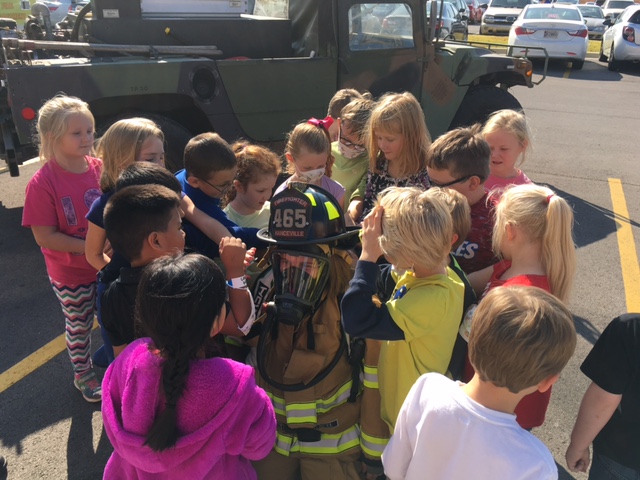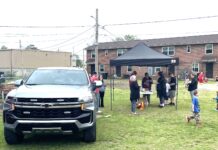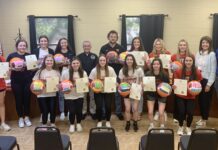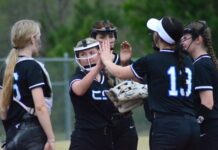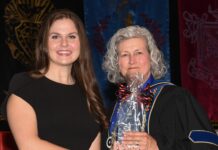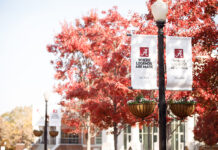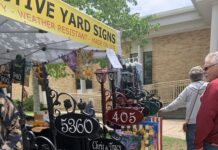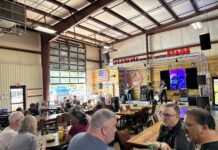Students get hands-on with a well-equipped firefighter.
HANCEVILLE – From Nov. 14-17, Wallace State Community College (WSCC) is hosting its eighth annual "Let's Pretend Hospital" (LPH) program for Cullman County first graders. The free program will see more than 1,000 students and teachers this week: all county public school first graders, plus those from three local private schools, over the course of the four days.
Program Director and Nursing School Coordinator of Clinical Learning Ann Culpepper explains that the fast-paced interactive program allows kids to experience potentially intimidating medical and emergency matters in a fun, non-threatening environment. She notes that children are often bewildered and frightened when in a hospital or when facing an emergency, mainly due to a lack of experience and understanding about the things they are seeing and hearing. LPH gives kids a hands-on chance to see how hospitals and emergency services work, so they can understand better and might be less afraid.
"The ultimate goal," Culpepper said, "is to decrease anxiety in children whenever they have to face an emergency or go to the hospital."
Participating students are greeted at their buses by WSCC nursing students who give each child a hospital arm band. From that point, they will spend about 10 minutes at each of eight stations set up in and around the School of Nursing and Center for Science:
- Handwashing – Kids learn about germs and habits for good health, and get to look at germs through a microscope.
- Safety – Kids learn about practices to keep them safe- bicycle helmets, seatbelts, the differences between pills and candy and others. They even get to practice "stop, drop and roll." Culpepper noted that most kids who end up in hospitals and emergency rooms are victims of preventable accidents, not disease.
- Healthy Nutrition – Children learn about healthy foods and snacks from the "very hungry caterpillar."
- Ambulance and Fire Trucks – Students get hands-on aboard an ambulance, and see up close all the equipment carried in emergency vehicles and worn by firefighters. The vehicles and staff for this station come from the Hanceville Fire Department.
The other four stations simulate common places in which children might find themselves in a hospital.
- Emergency Room – Kids learn what happens when someone has a medical emergency, and about using the 911 system, from well-known Dr. Seuss characters.
- X-Ray Room – Students see simulated x-ray images, and learn about bone health from the characters of "Frozen."
- Operating Room – Kids get their own surgical masks, and watch a make-believe procedure based on the game "Operation."
- Patient Room – Children see the inside of a typical hospital room, see what common nurses' tools do, and try out all the gadgets on the bed.
While WSCC staff plans and supervises the event, most of the characters and hands-on presenters at the stations (with the exception of the emergency vehicles) are nursing students.
WSCC is not the first institution to do an LPH program, but the school is getting attention for the way it does it. This year Genesis Health Systems of Davenport, Iowa sent two of its staffers down to observe, with the intention of creating a similar ongoing program back home. Allyson Miller and Nancy Adams were impressed with what the program offers, and even more so with the people involved. Both commented on the enthusiasm and energy of the nursing students working at the various stations.
Miller observed, "You can see the joy in the kids coming out of each room. That's because of the enthusiasm of the people who are doing it."
Copyright 2016 Humble Roots, LLC. All Rights Reserved.

